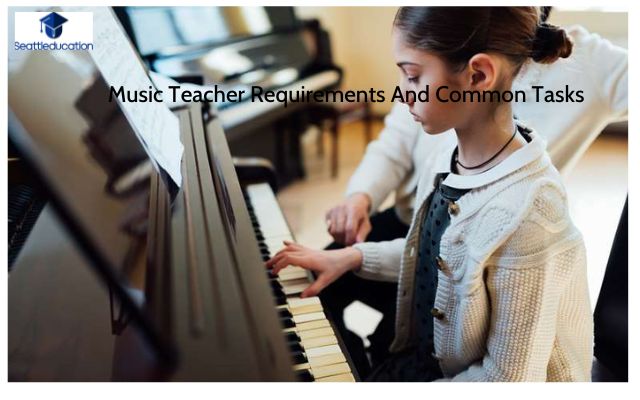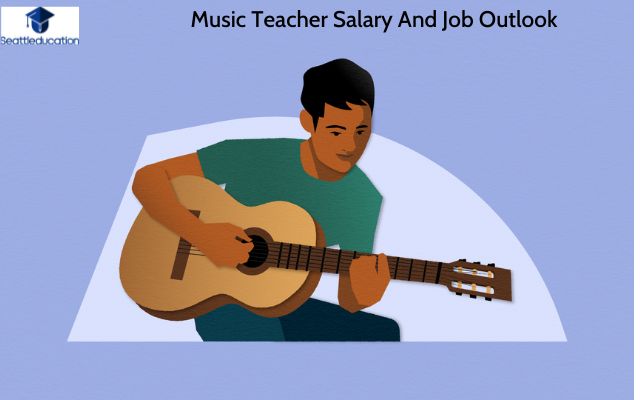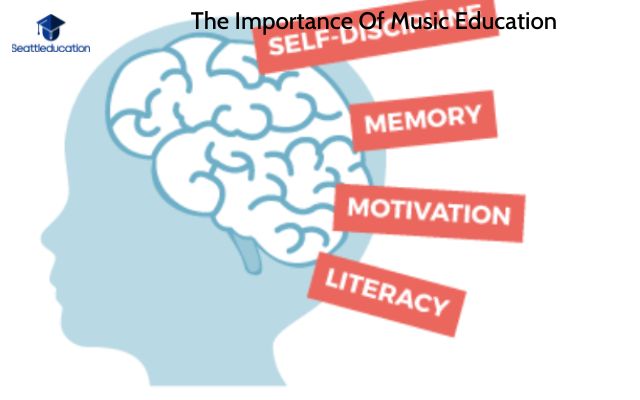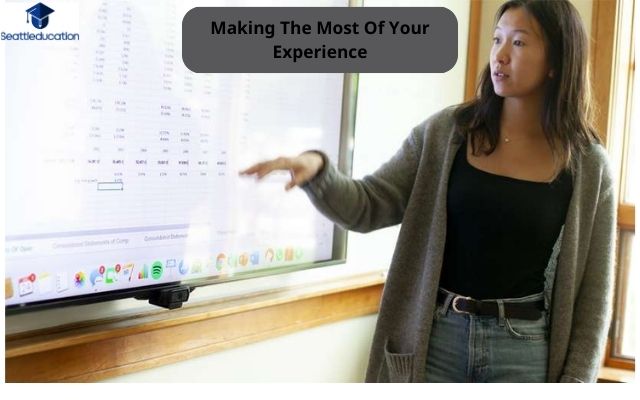Music Teaching Careers: The Ultimate Evaluation 2023
Music Teaching Careers: Working as a music teacher can be an incredibly rewarding and fulfilling career. Not only do you get to share your passion for music with others, but you also have the opportunity to help shape young minds and instill a love of learning in your students.
In this article, we’ll explore some of the different aspects of what it takes to pursue a successful career in music education – from qualifications and certifications needed, to salary expectations and job duties.
Let’s get started!
Introduction
Teaching music can be an incredibly rewarding career. I’ve been a music teacher for the past 10 years and it’s been one of the most fulfilling experiences I’ve ever had. Not only do you get to share your love of music with students, but there are also lots of other benefits too – like making connections with other teachers, networking in the community, being able to use technology in creative ways, and more!
Music education is so important because of its ability to provide students with valuable skills that they will carry into their adult lives. It encourages creativity, collaboration, critical thinking and problem-solving abilities – all things which help children develop well-rounded skillsets.
Music also provides wonderful opportunities for self-expression that aren’t available through any other medium. All this makes teaching music not just a job but a mission: helping our young people become successful adults.
Music Teacher Job Description
In the world of music, teaching careers are highly sought after. Music teachers come in many forms and have an array of roles and responsibilities that they must fulfill to ensure their students’ success. There are three types of music teachers: instrumental music teachers, vocal music teachers, and those who teach theory and history.
Instrumental music teachers typically focus on one instrument or group of instruments such as strings, brass, woodwinds, etc. They should be able to demonstrate proper technique and instruct students on fundamentals such as scales, chords, rhythm, sight-reading skills, improvisation techniques and more.
Vocal music teachers focus mainly on developing a student’s singing voice by helping them learn breathing exercises for control and pitch accuracy; as well as songs to perform with confidence.
Theory and history instructors help students develop basic theoretical knowledge including note reading/writing; harmonic analysis; form & structure; counterpoint; ear training; composition techniques; understanding musical styles from different eras; popular song writing structures etc.
All these activities can take place through private lessons or during classes at universities or conservatories depending on the teacher’s qualifications.
Music teaching is incredibly rewarding for both teacher and student alike – it requires patience yet gives great joy when you see your student finally master a piece! It also helps build meaningful connections between people which can last far beyond the classroom setting.
Music Teacher Requirements And Common Tasks
Teaching music can be an incredibly rewarding and enriching career. As a music teacher, you have the opportunity to inspire young minds by helping them explore their creativity through music. To become a successful music teacher, there are certain requirements and common tasks that must be fulfilled.

To start with, it’s important to have at least some sort of educational background in music theory or performance. Depending on where you plan to teach, having either a Bachelor’s degree in Music Education or licensure may also be required for teaching jobs. Additionally, certifications such as CTE (Career and Technical Education) certification can help open doors for more advanced positions as well.
Common tasks of a music teacher include:
– Preparing lesson plans and engaging activities based on curriculum standards.
– Instructing students on musical concepts such as rhythm, melody and harmony while developing their knowledge of musical instruments.
– Assessing student progress through regular tests and performances to ensure they are mastering the material being taught.
Aspiring teachers should also expect to spend time outside of teaching hours creating resources for their classes, coordinating special events such as concerts or festivals, and collaborating with other teachers in order to create comprehensive learning experiences for their students.
For those passionate about introducing children to the wonderful world of music, becoming a music teacher is sure to bring joy into both your own life and the lives of your students!
How To Become A Music Teacher
Now that you know the requirements and common tasks of a music teacher, let’s talk about how to become one. Becoming a music teacher is an incredibly rewarding career path but it does require dedication and hard work.
The first step in becoming a successful music teacher is completing your degree in music education. You can typically find these programs at universities or colleges with dedicated music departments. Having a college degree not only shows potential employers that you are qualified for the job but also helps build your credibility as an educator.
Once you have completed your degree, start gaining experience by interning or volunteering in educational settings such as schools, community centers, and churches.
This will give you firsthand knowledge of what it takes to be a great teacher while preparing you for the real-life demands of teaching students from different backgrounds. Additionally, having some experience under your belt increases your chances of finding permanent employment down the road.
You may also need to gain certification or licensure depending on where you live and teach. In many states, this requires taking classes and passing exams related to pedagogy and general education topics like math and English language arts.
The more credentials you have, the better chance you’ll have of landing higher paying positions so take advantage of any free courses offered by local school districts or online sources like Coursera or Edx.
Finally, don’t forget that networking is essential when trying to break into the teaching field! Reaching out to current teachers in your area can help open doors to great opportunities while giving insight into what steps might be needed before getting started with your own classroom.
Music Teacher Salary And Job Outlook
As a music teacher, you have the opportunity to earn a competitive salary while making a lasting impact on your students. The average salary for music teachers is dependent upon location and experience level; however, according to PayScale in 2018, the median annual pay was $45,500.

Job opportunities are also available in this field and growing as more schools focus on providing quality arts education programs. Here’s what you need to know:
* Demand for qualified music educators has been increasing steadily over the past few years due to increased funding from both public and private sources.
* With more schools offering courses such as general music classes or electives like choir or band, job prospects remain strong for those who specialize in teaching these subjects.
* Factors that can affect salaries include education level, experience with certain instruments/styles of music, certifications held by the educator and geographic region where they teach.
This career path offers an exciting chance to inspire young musicians while earning a living wage – no matter what type of musical background you bring!
Helpful Skills And Experience
Having the right skills and experience is essential for a successful teaching career in music. In addition to having technical proficiency on an instrument, it is important to have knowledge of classroom management techniques, pedagogical approaches, and communication strategies that will allow you to effectively engage with your students.
I have been fortunate enough to develop these abilities through my personal experiences as both a student and teacher.
As a student I had teachers who not only taught me how to play different instruments but also shared their insights into effective practice routines, performance anxiety, and other topics related to music education. These same lessons were invaluable when I started teaching my own students; they enabled me to create individualized lesson plans tailored to each student’s unique needs and interests.
Additionally, my background in psychology has helped me cultivate strong interpersonal relationships with my students which are essential for creating an optimal learning environment.
Music Teacher Career Interviews
As a music teacher, I have had the incredible opportunity to work with some of the most talented musicians in the world. It has been an incredibly rewarding experience that has allowed me to make meaningful connections and help students reach their fullest potential.
Additionally, I have also faced challenges such as finding creative solutions for difficult teaching problems or dealing with unruly students. Despite these difficulties, my passion for music and helping others grow continues to be an inspiration for me. Every day is filled with joys and surprises, from watching one student’s progress over time or hearing another student master a challenging piece of music.
What You’ll Do When You Become A Music Teacher
As a music teacher, you will be doing much more than just teaching your students the basics of their instrument. You’ll have the chance to explore new and innovative ways of helping them grow in their musical abilities while also understanding what motivates each student differently.
Here’s some of the things you can expect to do:
1. Create individualized lesson plans tailored for each student’s learning style, interests, and goals.
2. Support and encourage students by providing positive reinforcement during lessons.
3. Monitor progress towards established goals over time through periodic assessments such as written tests or practical exams.
4. Prepare students for performances with practice sessions designed around enhancing technique and confidence building exercises.
In addition to all this, it is important that music teachers keep up-to-date on current trends in both performance techniques as well as educational methods so they can continue to provide an engaging experience for their students year after year.
All these duties come together to form one rewarding job – being a successful music teacher!
Work Environment
The work environment for music teachers can vary depending on the setting. In public and charter schools, you will be working with students in a structured classroom format, introducing them to different musical styles. You might have one-on-one lessons or direct an ensemble of musicians in performances.
Private school settings often require more individualized instruction and customizing teaching strategies to fit each student’s needs.
For private lessons, you could teach at your own studio space, travel to other locations to give lessons, or even offer online classes. With this type of setup comes increased flexibility that allows you to set your own hours and rates as well as determine how many students you want to take on at any given time.
No matter what kind of environment you choose, it is important to ensure that both yourself and your students are safe while staying engaged in their studies.
Degrees And Certification
I wanted to become a music teacher, so I knew that having the right qualifications was essential. To get there, I had to start with a Bachelor’s degree in Music Education and then continue on for my Master’s degree. Alongside these degrees, I also needed specific state certifications.
Even after completing all of this schooling and obtaining certification, I still had to keep up with continuing education courses throughout my career as a way to stay current and be sure that I’m providing the best quality teaching experience possible.
It can be difficult since it requires extra time outside of class preparation and teaching itself but keeping up-to-date helps ensure that students are learning from an informed source and keeps me ahead of any changes or new developments in the field of music education.
The Importance Of Music Education
Music education is an invaluable tool for helping children develop and grow. It has a wide range of cognitive, emotional and developmental benefits that can help students reach their full potential.

Not only does it nurture creativity, self-expression and cultural awareness but it also teaches important life skills like discipline, goal setting and teamwork.
These are some of the reasons why music education should be taken seriously in our schools today. With its unique blend of theory and practice, learning to play an instrument or participate in a musical ensemble provides countless opportunities to learn valuable lessons while having fun at the same time!
Investing in quality music instruction now will ensure that today’s youth have the tools they need to succeed later on down the road.
Opportunities For Professional Development
As a music teacher, there are countless opportunities to grow and diversify your skillset. From attending workshops and conferences to pursuing additional certifications and staying updated with the latest teaching methods, there is always something new for teachers to learn.
Here is a list of four great ways to get started on professional development:
1. Attend local or regional workshops related to your field of expertise.
2. Sign up for online courses that offer educational credits in areas such as curriculum design and assessment strategies.
3. Join an organization dedicated to advancing the profession of music teaching through research-based resources and advocacy initiatives.
4. Network with other professionals in the field by participating in webinars, joining discussion groups, or connecting via social media platforms like LinkedIn or Twitter.
Developing professionally can help you stay current with industry trends, boost student engagement levels, and increase job satisfaction—all which make for a more rewarding career!
Balancing Performance And Teaching
I know from experience that balancing a performance and teaching career can be challenging, yet immensely rewarding. From my own personal journey of dual-career paths I have learned the importance of prioritizing each role separately in order to stay organized.
As an active performer and teacher, I must actively manage my time so that neither one is neglected or receives less attention than it deserves. With careful planning, I am able to successfully balance both roles without any issues; however, there are times when unexpected events occur which require me to adjust my schedule accordingly.
Despite these moments of stress and uncertainty, I still feel incredibly blessed to pursue two passions at once – something not everyone gets to do!
The Role Of Technology In Music Education
I’m a big believer in the power of technology when it comes to music education. Technology can help students learn more quickly and effectively, as well as making lessons more engaging for both teachers and students alike.
For example, I recently started using digital audio software with my group classes that allows me to record student performances so they can hear themselves playing back and make improvements on their own time. It’s also been really useful for online teaching sessions, because there are so many options available now like video conferencing apps that make remote learning easier than ever before.
The impact of technology on music education has been huge – allowing teachers to create exciting new lesson plans, experiment with different approaches to instruction, and even reach out to learners all over the world. In addition, having access to educational resources online makes it much simpler for music teachers to stay up-to-date with the latest techniques and best practices in the field.
All in all, technology is an invaluable tool when it comes to advancing our knowledge and skills as educators – helping us inspire our students every day!
Building A Network In The Music Education Community
Having discussed the role of technology in music education, it’s now important to consider how one can build a network with other professionals in this field. As an educator, having strong connections within your community is vital for success and growth in the profession.
The best way to start building relationships is by attending local events or conferences related to music education. These types of gatherings bring together experienced educators who are eager to share their knowledge and insights. You’ll also find many networking opportunities where you can connect with colleagues and gain valuable advice from those already established in the industry.
Additionally, joining professional organizations such as Music Teachers National Association (MTNA) or your state-level association gives you access to resources that can help advance your career.
Finally, connecting on social media platforms like LinkedIn or Twitter will allow you to keep up with trends and news within the industry while simultaneously expanding your reach into the music teaching community.
Challenges Faced By Music Teachers
Teaching music can be an incredibly rewarding career, but it’s not without its challenges. As a music teacher, you may face limited resources and budget constraints that make it difficult to provide the best possible education for your students.
You may also find yourself advocating for increased funding of music programs in schools or speaking out about the importance of music education in general.
Additionally, adapting instruction to different learning styles and abilities among diverse student populations is another challenge that all teachers must face. At times, these obstacles can seem overwhelming; however, with creativity and dedication, any good teacher can help their students succeed.
It’s important to remember why we became educators in the first place – because we care about our students and want them to have access to quality musical opportunities regardless of background or circumstances. With this outlook, even the most challenging teaching situations become an exciting opportunity!
Success Stories And Inspirations
Music teachers have a profound impact on their students’ lives. Through their guidance, they help foster creativity and confidence in young musicians. It’s no surprise that there are many success stories out there of music educators who’ve had an extraordinary influence on the lives of their students.
One such story is about Ms. Smith, a beloved music teacher at my high school. She was dedicated to her craft and instilled a passion for learning in all of us.
She’d often stay after hours to give extra lessons and would always encourage us to strive for excellence in our performances. Her commitment enabled some of us to get accepted into prestigious conservatories across the country — something we never thought possible before meeting her!
We owe so much of our musical successes to Ms. Smith, whose hard work and dedication made it all possible.
Tips For Aspiring Music Teachers
If you’re dreaming of becoming a music teacher, congratulations! It’s an incredibly rewarding profession that can bring immense joy to both yourself and your students. Here are some tips for aspiring music teachers to help get them started on the right path:

First and foremost, it’s important to create a strong foundation in both music theory and pedagogy – this will serve as a launching pad for your future teaching career.
Take time to immerse yourself in music history, learn different composers and styles, understand how chords work together; all of these areas should be studied deeply so that you become knowledgeable about the subject matter. Additionally, having knowledge of basic pedagogical techniques is key for any successful music educator.
It’s also essential to gain diverse teaching experiences before pursuing a full-time position or launching out on your own. You may have opportunities to teach privately from home or through community programs such as those offered at libraries or afterschool activities.
Teaching in various settings helps build confidence with different age groups and provides invaluable experience managing classrooms, crafting lesson plans, creating assessment tools and more.
Finally, don’t underestimate the importance of staying passionate about what you do – enthusiasm goes a long way with children (and adults!). Resilience is another must-have quality when building any successful career; learning how to cope with challenges without losing sight of your goals is fundamental for success.
With dedication coupled with practical skills and knowledge, everything else will fall into place along the journey towards reaching your dreams!
Adapting To Different Educational Settings
Teaching music in a variety of educational settings can be an exciting and rewarding experience. No two days are the same; you will consistently encounter new students, obstacles, and situations that require creative problem-solving skills.
The challenge is to make sure your students have access to quality musical education regardless of their environment. In urban schools, for example, it is important to know the local culture and take into account the amount of resources available. You may need to think outside the box with fewer instruments or limited space for rehearsals.
Suburban schools often provide more financial support than their rural counterparts but still present unique challenges like transportation issues or overcrowded classrooms.
Rural schools may offer smaller class sizes but may not have as many opportunities for extracurricular activities or professional development opportunities.
To effectively teach music in all three of these environments requires flexibility, understanding, and creativity – all traits that can help you become a successful teacher no matter where you end up!
Conclusion
I can confidently say that music teaching is a very rewarding and satisfying career. Not only do you get to share your passion for music with others, but you also have the opportunity to help people of all ages develop their musical abilities.
It’s an incredibly fulfilling job in terms of both emotional satisfaction and salary potential. With the right qualifications and dedication, anyone could make a successful career out of it! In conclusion, if you are passionate about music and want to share it with other people while getting paid well, then becoming a music teacher might be just the career path for you.
With the right qualifications, skills and attitude, there’s no reason why this shouldn’t be a great option for me – or any aspiring musician looking to take their love of music into a professional sphere.






